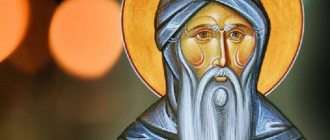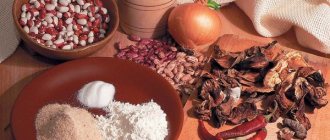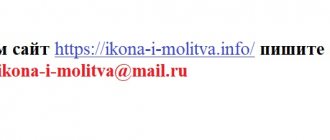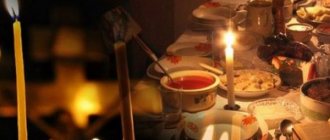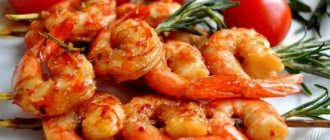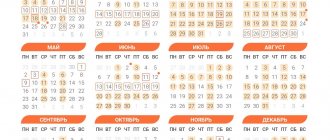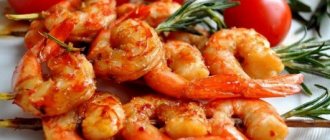When does Lent begin in 2022?
Lent, or, as it is commonly called, “Great Lent,” has a special meaning for Christian believers and is an act of remembrance of Jesus’ sojourn in the desert. Tempted by the devil, he fasted for 40 days. Although fasting is associated with this event, the number of days in it is not always equal to forty. The timing depends on the accepted calculation in a particular religion.
The days of Lent change every year and directly depend on the date of Holy Easter.
In 2022, the 48-day fast will begin on March 7th and end on the 23rd in April.
The purpose of the Great Pentecost is spiritual and moral preparation for the great holiday of Holy Easter. As a rule, it begins on Maundy Monday and ends on Friday of the last week.
On the eve of Lent, Orthodox Christians celebrate 3 preparatory weeks: the week of Matyr and the Pharisee, the Week of the Prodigal Son and the Week of the Last Judgment. They are necessary in order to prepare believers for the strict forty-day rules. The last week is Maslenitsa. It ends with Forgiveness Sunday, followed by Clean Monday - the first day of Pentecost.
Nutrition calendar during Lent by week (table) in 2022
Table of products allowed for consumption during Lent, according to the Church Charter Typikon
, written a thousand years ago for monks living in the Mediterranean.
The charter specifies only the most strict rules and norms, which all believers must strive to observe.
The conditions for relaxations and exceptions are below. Week 1
| Day of the week | date | Diet |
| Monday | March 15th | Complete abstinence |
| Tuesday | March 16 | Xerophagy* |
| Wednesday | March 17 | Xerophagy |
| Thursday | 18th of March | Xerophagy |
| Friday | March 19 | Xerophagy |
| Saturday | 20th of March | Boiled food with butter, wine |
| Sunday | 21 March | Boiled food with butter, wine |
Week 2
| Day of the week | date | Diet |
| Monday (week 2) | March 22 | Xerophagy |
| Tuesday | March 23 | Boiled food without oil |
| Wednesday | March 24 | Xerophagy |
| Thursday | March 25 | Boiled food without oil |
| Friday | 26 March | Xerophagy |
| Saturday | March 27 | Boiled food with butter, wine |
| Sunday | March 28 | Boiled food with butter, wine |
Week 3
| Day of the week | date | Diet |
| Monday (week 3) | March 29 | Xerophagy |
| Tuesday | 30th of March | Boiled food without oil |
| Wednesday | March 31 | Xerophagy |
| Thursday | April 1 | Boiled food without oil |
| Friday | April 2 | Xerophagy |
| Saturday | April 3 | Boiled food with butter, wine |
| Sunday | April, 4 | Boiled food with butter, wine |
Week 4
| Day of the week | date | Diet |
| Monday (week 4) | 5th of April | Xerophagy |
| Tuesday | April 6 | Boiled food without oil |
| Wednesday | April 7 | Fish allowed |
| Thursday | April 8 | Boiled food without oil |
| Friday | April 9 | Xerophagy |
| Saturday | April 10th | Boiled food with butter, wine |
| Sunday | 11 April | Boiled food with butter, wine |
Week 5
| Day of the week | date | Diet |
| Monday (week 5) | 12th of April | Xerophagy |
| Tuesday | April 13 | Boiled food without oil |
| Wednesday | 14th of April | Xerophagy |
| Thursday | April 15 | Boiled food without oil |
| Friday | April 16 | Xerophagy |
| Saturday | April 17 | Boiled food with butter, wine |
| Sunday | April 18th | Boiled food with butter, wine |
Week 6
| Day of the week | date | Diet |
| Monday (week 6) | April 19 | Xerophagy |
| Tuesday | 20 April | Boiled food without oil |
| Wednesday | April 21 | Xerophagy |
| Thursday | April 22 | Boiled food without oil |
| Friday | April 23 | Xerophagy |
| Lazarev Saturday | April 24 | Boiled food with butter, wine, caviar |
| Palm Sunday | 25th of April | Boiled food with oil, wine, fish |
Week 7
| Day of the week | date | Diet |
| Monday (Holy Week) | 26 April | Xerophagy |
| Tuesday | April 27 | Xerophagy |
| Wednesday | April 28 | Xerophagy |
| Thursday | April 29 | Xerophagy |
| Friday | April 30 | Complete abstinence |
| Saturday | 1st of May | Complete abstinence |
| Resurrection (Easter) | May 2 | Meat eater |
* Xerophagy
- plant foods that have not been subject to heat treatment, fresh, dried or soaked vegetables and fruits (Typikon offers, for example: figs, dates, raisins, olives, nuts).
Lenten recipes without oil
For a lean diet without vegetable oil
View recipes
Lenten bread
All kinds of lean bread options for the menu for Lent
View recipes
Is Lent a diet?
Pentecost is not simply a daily diet, as many mistakenly interpret this tradition. This is only a period of temporary abstinence. And it's not just about food. Rules exist not only for physical food, but also for spiritual food.
This time must be devoted to getting closer to God and renouncing earthly temptations. But the essence of fasting is not only in cleansing the body, but also in cleansing one’s soul from evil, insults, temptations and bad thoughts. Only when a person is pure both physically and spiritually will he be ready to meet God.
Fasting is an important tradition for Christians. They deliberately abstain from certain foods not because they want to lose weight. For them, this is an opportunity to educate themselves, test their willpower and level of self-control. Instead of physical food, believers are nourished with spiritual food.
It often happens that a person can become aggressive and irritable during fasting. This means that abstinence has the effect it should. Its meaning is to expose human sins and passions, to show what the fasting person must fight.
When the fast ends, a state of extraordinary joy comes over the fact that a person has passed this difficult period with dignity and managed to abstain from temptations and passions. Now he is one step closer to God.
History of origin
The history of the Great Pentecost began back in the days of the New Testament, when Jesus told his disciples about the sacraments of fasting and himself fasted for 40 days, setting an example for all believers.
In Rus', fasting has been observed by Christians since ancient times. It took place on certain fast days and lasted no more than 40 hours. Those who fasted completely abstained from food. Then only those who wished could fast, but from the 4th century the Church declared Lent universal and its duration increased to 6 days. A Christian who did not follow the rules was excommunicated from the church for a certain period of time. Despite this, many continued to fast for only 2 days.
Initially, only pagans fasted for 40 days before baptism, but already in the 5th century this tradition also appeared among the Orthodox. Strict prohibitions carried the idea that food should be cheap and fast, so that more time was left for prayer, and the money left over from dinners was spent on donations. But soon the rules were relaxed, and fish and hot vegetable dishes were included in the diet.
Other religions also hold fasts similar to the Orthodox Holy Pentecost:
- Muslims call the most important fast “Ramadan” and it takes place in the ninth month of the calendar. During Ramadan, believers can only eat after sunset.
- The Protestant fast of the Passion of Christ also lasts 40 days. There are no nutritional rules.
- For Catholics, fasting runs from Ash Wednesday until Maundy Thursday. Meat products are prohibited.
- In Judaism, periods of fasting are divided into two types: Fasting for all believers (Purim) and individual fasts (birth of a son). Each post has its own nutritional characteristics.
Mysteries of Lent: why does it last 40 days and why do believers need Maslenitsa?
A church historian told why observing Lent was once considered reprehensible and why the church used Maslenitsa festivities.
Maslenitsa week is coming to an end, which means that an important event for all Christians will soon begin - Lent. This year, Holy Pentecost (the Church Slavonic name of the fast) falls on the period from February 19 to April 7. However, simple arithmetic calculations can easily establish that this is not 40, but 48 days.
The fact is that Holy Week is also joined by Holy Week - the last week before Easter, dedicated to memories of the last days of Christ’s earthly life, his suffering and crucifixion.
Then where did the number 40 come from? There is the most popular version, according to which this time period is due to the fact that Jesus, as stated in the text of the Gospels, fasted for 40 days in the desert, where he retired after his baptism, and therefore all Christians must also fast for 40 days. But in fact, in the history of the church, the establishment of this duration of fasting was associated with other processes that are rarely remembered today.
Pieter Bruegel. The battle of Maslenitsa and Lent
We asked Nikita Gaidukov, a historian, archaeologist, and also a teacher at the Department of Liturgical Theology of the Orthodox St. Tikhon’s Humanitarian University to talk about them. He revealed the true essence of fasting, explained why the church actually needs Maslenitsa and why Western Catholics abandoned Lent.
“Preparation courses” for baptism
– Nikita Evgenievich, explain one simple thing: why does fasting last exactly 40 days? Is this due to the fact that Jesus fasted for 40 days in the desert after his baptism? Or is there another reason?
– This is a difficult question. First of all, we should reflect such a simple and obvious idea: Lent is, on the one hand, a time of year, and on the other, a rather complex liturgical institution. As a time of the calendar year, Lent originally emerged as a non-Christian tradition. Participation in various rituals, as a rule, took place on an empty stomach. And in this sense, the fast developed from a very small “core” - a fast of several hours before participating in the Easter liturgy, and then grew into a large, forty-day fast. And as a liturgical institute, it is an institute of preparation for baptism. It included not only fasting as such, not only not eating food, but also certain conversations, that is, it was like an educational program. At first the fast lasted several hours, then it stretched for several days, for a week and continued to develop further. But the fast that we have in mind, that is, tied to various holidays and dates, in ancient times was precisely the institution of preparation for baptism, in which only those who baptize and the one who is baptized took part. But gradually it all merged into one tradition and grew into a forty-day fast.
I.N. Kramskoy. Christ in the desert
– What role does fasting play in the lives of believers today?
– In this sense, now neither one nor the other understanding has much meaning for us: neither the understanding of preparation for the Easter holiday, nor the “preparation courses” for baptism. This is a rather complex and multifaceted tradition.
– Nevertheless, in the minds of Russian Orthodox people, it seems to me, a certain understanding of fasting has developed precisely as Lent, during which one should abstain not only from consuming a number of foods, but also from sinful thoughts and deeds. Only the fast does not last exactly 40 days, because there is still Holy Week. Tell me what it is? Is it considered part of Lent?
– Holy Week once referred not to Lent, but to Easter itself - in ancient times it was part of the Easter holiday. This happened because in those days there were two ideas about Easter: as the Easter of suffering (Easter of the Cross) and the Easter of joy (Easter of the Resurrection). Therefore, at least Thursday, Friday and Saturday during Holy Week in ancient times belonged to the Easter cycle - the colored Triodion (The colored Triodion, or Pentecost, is a liturgical book containing hymns from Easter Week to All Saints Sunday, that is, the next Sunday after Pentecost; name comes from the holiday of the Entry of the Lord into Jerusalem - Vai Week, translated - “Colored Week.” - Ed.). Actually, the number 40 itself is purely conditional, therefore, no matter how you think, you will not be able to fast for 40 days. The focus should not be on this, but rather on the fact that we have ancient traditions that once had a deep meaning, which arose for a reason, but which we can now fill with some new content.
N.K. Pimonenko. Leaving church on Maundy Thursday
For observing the fast - to the police
– Has fasting always existed in the Russian Orthodox tradition? Has your attitude towards him changed?
– I’ll tell you one wonderful thing that you probably don’t know. The fact is that the observance of Lent (both strict and non-strict) is an intermittent tradition. That is, it was not always like this. In the 18th century, nobles did not observe Lent - not at all! And a denunciation was once written against one of the Russian landowners, saying that he was observing Lent and therefore he was a Catholic. It was a rather serious matter: he was called to the police station, interrogated, forced to participate in rituals... He said: “But you are supposed to fast!” - and they answered him: “The landowners don’t keep fasts, and you’re probably not Orthodox.” And now all this has changed in a completely different direction. Today it is very difficult to find a Catholic who strictly observes fasts. In our country, on the contrary, ritual is very important.
– By the way, about rituals. Lent for Russian people is closely connected with another interesting tradition - Maslenitsa, which is a prayer before Lent. But aren’t there elements of paganism in this holiday? How does the Orthodox Church generally relate to Maslenitsa?
– In fact, there are no pagan traditions in Maslenitsa. It was invented in order to prevent the post from continuing to increase. But in essence, Maslenitsa is already a fast week, because some fasting traditions are already beginning to be observed at this time, that is, the liturgical institute is already working. Easter as such an institution was associated specifically with preparation for Easter baptism. But Easter as a time of year is not a time of some active ascetic traditions, but a time of new knowledge and understanding of how and why the death and resurrection of Jesus Christ happened.
L.I. Solomatkin. Maslenitsa
The roots of Maslenitsa are in the Armenian Church
– You said that Maslenitsa was invented in order to prevent further extension of the fast. What does it mean?
– The fact is that all churches are different, and there are ancient churches that have existed independently for a very long time. So, one of the traditions of the Armenian church was to increase fasting by a week. In contrast to this, relatively speaking, the Maslenitsa tradition was invented. It originated during the Middle Ages. In the calendar of the Russian Orthodox Church, the period when people celebrate Maslenitsa is called Cheese Week. At this time, eating meat is prohibited, and Wednesday and Friday services are performed according to the Lenten charter, which is close to that of Lenten. The establishment of a week-long fast preceding Lent dates back approximately to the 7th century. This tradition spread widely in the East, but was observed everywhere a little differently; for example, the Byzantines timed the week-long fast to coincide with the week before Lent and limited its severity, while among non-Chalcedonians (for example, the same Armenians) it was timed to coincide with the week 10 or 9 weeks before Easter and is observed as strictly as the others posts.
– Is it possible to briefly explain to a person who is not very knowledgeable in Orthodox traditions, or, say, to a child, what the meaning of fasting is? After all, this is not just a refusal of many types of foods, not a strict diet, but something more?
– For modern people, unfortunately, the meaning of this phenomenon as an institution of preparation for baptism and comprehension of Easter events has been a little lost. And it is also very difficult for children to explain the essence of ancient traditions. But there are different ways to overcome this. Let’s say that in the West, fasting as a tradition of not eating has disappeared, but the tradition of preparing for Easter, some Easter concerts, pre-Easter meetings has been preserved. In this sense, it is important to pay special attention not to strict adherence to tradition, but to the inner meaning it is filled with.
N.K. Pimonenko. Easter Matins in Little Russia
Preparatory weeks of Lent
Before Lent there are three preparatory weeks:
- The Week of the Publican and the Pharisee
In the first week you may not fast only on Wednesday and Friday. On all other days, rules and prohibitions are observed. - About the Prodigal Son
You need to fast only on Wednesday and Friday. - About the Last Judgment (Meat Week)
This week fasters can eat meat on Sunday for the last day before the Great Pentecost. - Cheese Week
The week before Lent is popularly called “Maslenitsa Week”. Wednesday and Friday are not fast days. You can eat everything except meat. It is already excluded from the diet.
It is necessary to start preparing for Lent in advance, especially for beginners. After three preparatory weeks, the body becomes completely accustomed to the strict rules of abstinence.
How to easily enter a post
- Gradually reduce the amount of consumption of prohibited foods, replacing them with vegetable protein: legumes and buckwheat.
- Not everyone understands that vegetables and fruits can have harmful effects on the body if you suddenly switch to consuming fiber in large quantities. Therefore, during preparation they also need to be gradually introduced into your diet.
- It is important to remember that lean foods contain much fewer calories. During the first period of fasting, you need to increase the size of portions consumed in order to reduce the risk of stress due to hunger.
- The body needs fats and carbohydrates for energy. During the preparatory weeks, do not forget to add 1 teaspoon of vegetable oil to your food (not allowed during fasting), and also eat 1-2 slices of dark chocolate. It contains cocoa butter, which will also have a beneficial effect on digestion.
- Have small snacks between main meals.
- Give preference to products made from coarsely ground cereals.
- Against the background of dietary restrictions, immunity may weaken. Therefore, the best solution would be to take a complex of vitamins during fasting.
How to prepare and enter into fasting as planned
- It is better to start preparing for fasting a couple of weeks in advance. It is necessary to gradually reduce the content of animal products in the diet and increase the amount of plant foods.
- In the last week before fasting, it is necessary to create a protein depot so that the body does not experience shortages. Nutritionists recommend eating an egg and 150-200 grams of fish daily. It is better to exclude animal meat, as it is less easily absorbed by the body.
- It is necessary to accustom the body to fiber. The main diet of lean food is vegetables and fruits, which contain large quantities of fiber. Add fresh salads and snacks of vegetables and fruits to your diet every day. Oil week can help with this if you add bran or wholemeal flour to the dough for baking pancakes.
- Restore intestinal microflora. In order not to experience discomfort after changing your diet, you need to take care of your intestines - populating it with beneficial bacteria. To do this, a week before fasting, it is recommended to consume fermented milk products every day: yogurt, kefir, yogurt. These products can be prepared independently using a starter made from bifidobacteria.
- In the first days of fasting, it is recommended to increase portions and the number of meals. Lenten dishes are lower in calories. This will prevent you from feeling hungry.
- Snack on vegetables and fruits to keep you full throughout the day.
How to break fast without harm to your health
Just like entering a post, exiting should happen smoothly. You need to be especially careful with alcohol and meat dishes during Easter.
You cannot suddenly return to your usual eating rhythm. Otherwise, the body experiences a heavy load, which affects health.
You need to introduce foods that you have abstained from for 7 weeks little by little. In the first days of leaving, you should eat milk, fish and eggs in small portions. Dishes must be consumed boiled or stewed. The best solution is to postpone complex and heavy dishes for later.
Home prayers that are read during fasting
Icon "Holy Pentecost"
Prayers for the first week of Lent
Stichera for Monday of the 1st Week of Great Lent
Come diligently, having a strong weapon of fasting, like a shield, we will turn away all the intrigues of the enemy’s charms. We will not be scorched by the sweets of passions, nor will we be afraid of the fire of temptations, in the image of Christ the Lover of Mankind with the honors of patience crowns us. Having prayed with boldness, we fall down callingly, asking for peace, and great mercy for our souls.
“Let us come with zeal, holding the strong weapon of fasting like a shield, we will repel all the enemy’s machinations of the evil one, believers. Let us not be scorched by sensuality, we will not be afraid of fiery temptations, for the patience of which the philanthropic Christ will crown us with honors. And therefore, praying with boldness, we fall down to Him, crying out and asking for peace and great mercy for our souls.”
Stichera for Monday of the 1st Week of Great Lent
Come, damned soul with your flesh, confess to the Creator of all and remain the rest of your former speechlessness, and bring tears to God in repentance.
“Come, damned soul, with your body, confess to the Creator of the world and leave your former madness, and bring tears of repentance to God.”
Man has sinned more than all, the only one who has sinned is You: but as God, O Savior, have mercy on Your creation. “I have sinned more than all people, I alone have sinned against You, but, Savior, be merciful as God to Your creation.” Tears of a harlot, O Generous One, and I offer: cleanse me, O Savior, with Thy compassion.
Morning prayers
Morning prayer rule:
“Lord, be merciful to your servant (name)! Send me your blessing and don’t look away. Give me the strength to resist the evil that tests me, help me cleanse my soul of sins committed willingly and unwillingly. Amen."
“Lord Almighty! Lord of my life. Take away from me the spirit of idleness and allow me to spend the time of Lent in humility. Protect from sinful thoughts, do not let everyone stray from the righteous path You have outlined for everyone. Amen."
“Lord Jesus Christ, Son of God. For the sake of the Virgin Mary, the Most Pure Mother, and all the Saints, have mercy on me (name), a sinner. Glory to Thee, Lord, deliverer and merciful Father in Heaven. Amen."
Prayers of repentance read at Matins:
“Open the doors of repentance, O Life-Giver, for my spirit will rise to Thy holy temple, the temple of my body is completely desecrated; but as you are generous, cleanse me with Your gracious mercy.
Instruct me in the path of salvation, O Mother of God, for my soul has been frozen with cold sins and my whole life has been spent in laziness; but through Your prayers deliver me from all uncleanness.
Thinking about the many cruel things I have done, O wretched one, I tremble at the terrible day of judgment, but hoping for the mercy of Thy mercy, as David cries out to Thee: have mercy on me, O God, according to Thy great mercy.”
Evening prayers
Evening prayer rule:
“Lord God, creator of all life on earth and the King of Heaven, forgive me for the sins I have committed during the day in word or deed. Even in a dream, I, God’s servant, do not lose faith in You.
I believe that You will save me from sins and cleanse my soul. Every day I hope for Your protection. Hear my prayer, answer my requests. Amen."
“Guardian Angel, protector of my soul and my body. If I have sinned this day, deliver me from my sins. Don't let the Lord God be angry with me. Pray for me, God’s servant (name), before the Lord God, ask him for the forgiveness of my sins and protect me from committing evil. Amen."
Akathist to the Blessed Virgin Mary
Kontakion 1.
To the chosen Voivode, victorious, as having got rid of the evil ones, let us sing thanksgiving to Thy servants, the Mother of God; but as you have an invincible power, free us from all troubles, and let us call to You: Rejoice, Unbrideless Bride.
Ikos 1.
A representative angel from Heaven was sent quickly saying to the Mother of God: Rejoice, and with a disembodied voice you were incarnated in vain, Lord, terrified and standing, calling to Her like this: Rejoice, She is glad the spine will shine; Rejoice, the oath will disappear. Rejoice, proclamation to fallen Adam; Rejoice, the tears of Eve are deliverance. Rejoice, height unattainable by human thoughts; Rejoice, depth unfathomable and with angelic eyes. Rejoice, for you are the seat of the King; Rejoice, for you bear the One who bears everything. Rejoice, Star that reveals the Sun; Rejoice, womb of the Divine Incarnation. Rejoice, the creation is being renewed; Rejoice, we worship the Creator. Rejoice, Unbride-less Bride.
Kontakion 2.
Seeing the Holy One in purity, he boldly says to Gabriel: the glorious voice of yours is inconvenient to my soul, appearing: the birth of the seedless birth, as the verb says, calling: Alleluia.
Ikos 2.
The misunderstood mind is understood by the Virgin, seeking, crying out to the servant: clean from the side, How can a Son be born powerfully, O Lord? He speaks to Neizha with fear, calling to his mother: Rejoice, counsel of the ineffable Mystery; Rejoice, silence of those who ask for faith. Rejoice, the beginning of the miracles of Christ; Rejoice, His commands are supreme. Rejoice, heavenly ladder, from which God descended; Rejoice, bridge, leading those who are from earth to heaven. Rejoice, verbose miracle of the angels; Rejoice, demons' many-weeping defeat. Rejoice, O Light that inexpressibly gave birth; Rejoice, even though you have taught not a single person. Rejoice, thou who surpassest the understanding of the wise; Rejoice, thou illuminating the meanings of the faithful. Rejoice, Unbride-less Bride.
Kontakion 3.
The power of the Most High Autumn will then bring forth the unskillful and fertile Toya, who is fertile, like a village showing something sweet, to all who want to reap salvation, always sing in your throat: Alleluia.
Ikos 3.
Having the womb of the God-pleasing Virgin, she was born to Elizabeth: and her baby abie knew the sowing kiss, rejoiced, and played with songs, crying out to the Mother of God: Rejoice, branches of unfading flammable; Rejoice, immortal fruit acquisition. Rejoice, O worker who makes the Lover of mankind; Rejoice, you who gave birth to the Gardener of our life. Rejoice, O field, who increases the supply of bounty; Rejoice, table, bearing abundance of cleansing. Rejoice, for you are flourishing as a food paradise; Rejoice, for you have prepared a haven for souls. Rejoice, pleasant censer of prayer; Rejoice, purification of the whole world. Rejoice, God has good will towards mortals; Rejoice, mortals have boldness towards God. Rejoice, Unbride-less Bride.
Kontakion 4.
Having a storm within, having doubtful thoughts, the chaste Joseph was dismayed, to You in vain, unmarried, and thinking about the marriage that was stolen, Immaculate; Having taken away your conception from the Holy Spirit, he said: Alleluia.
Ikos 4.
Hearing the shepherd of Angels singing the carnal coming of Christ, and as they came to the Shepherd they saw Him like an immaculate lamb, fallen in the womb of Maryna, even as they sang: Rejoice, O Lamb and Shepherd Mother; Rejoice, courtyard of verbal sheep. Rejoice, torment of invisible enemies; Rejoice, the doors of heaven are opening. Rejoice, as those in heaven rejoice in those on earth; Rejoice, for the things on earth resemble those in heaven. Rejoice, silent mouth of the apostles; Rejoice, invincible insolence of the passion-bearers. Rejoice, firm affirmation of faith; Rejoice, bright knowledge of grace. Rejoice, hell has been laid bare to the south; Rejoice, we are clothed with glory. Rejoice, Unbride-less Bride.
Canon
The Great Penitential Canon of Andrei of Crete
Song 1
Irmos: Helper and Protector become my salvation, This is my God, and I will glorify Him, God of my Father, and I will exalt Him: gloriously will I be glorified. Translation: [A Helper and Protector has appeared to me for salvation, He is my God, and I will glorify Him, the God of my father, and I will praise Him, for He is magnified in glory.] (Ex. 15:1-2) Chorus: Have mercy on me, O God, have mercy on me. Where will I begin to cry about my accursed life and deeds? Will I make a beginning, O Christ, for this present mourning? But, as you are kind, grant me forgiveness of sins. [Where should I begin to mourn the deeds of my ill-fated life? What beginning will I make, O Christ, for my present lamentation? But You, being merciful, grant me remission of sins.] Come, damned soul, with your flesh, confess to the Creator of all, and remain the rest of your former speechlessness, and bring tears to God in repentance. [Come, unfortunate soul, with your flesh, confess to the Creator of all, finally refrain from your former recklessness and bring tears to God with repentance.] Having become jealous of the crime of the Primordial Adam, I have known myself naked from God and the ever-present Kingdom and sweetness, sin for my sake. [By imitating the primordial Adam in crime, I recognize myself as deprived of God, the eternal Kingdom and bliss for my sins.] (Genesis 3:6-7) Woe to me, accursed soul, that you became like the first Eve? You saw evil, and you were wounded by the mountaineer, and you touched the tree, and you tasted the insolent, wordless food. [Woe is me, my unfortunate soul, why have you become like the first-created Eve? You looked not kindly and were cruelly wounded, touched the tree and boldly tasted the meaningless fruit.] (Genesis 3:6) Instead of sensual Eve, my mental Eve was Eve, in the flesh a passionate thought, showing sweet and tasting the ever-bitter drink. [Instead of the sensual Eve, a mental Eve arose in me - a carnal, passionate thought, seducing with pleasant things, but when tasted, always filling with bitterness.] Worthyly, Adam was expelled from Eden, because he did not keep Thy one commandment, O Savior; Am I supposed to suffer, the animal always sweeping aside Your words? [Adam was worthily expelled from Eden, as he did not keep one of Your commandments, Savior. What must I endure, who always reject Your life-giving commandments?] (Gen. 3:23)
Gospel
Gospel for the 1st week of Lent
Triumph of Orthodoxy. Gospel of John, Chapter 1, verses 43-51
The next day Jesus wanted to go to Galilee, and he found Philip and said to him: follow me. Philip was from Bethsaida, from the same city as Andrew and Peter. Philip finds Nathanael and says to him: We have found the One about whom Moses in the law and the prophets wrote, Jesus the son of Joseph from Nazareth. But Nathanael said to him: Can anything good come from Nazareth? Philip says to him: come and see. Jesus, seeing Nathanael coming to Him, said of him: Behold, truly an Israelite, in whom there is no guile. Nathanael says to Him: Why do You know me? Jesus answered and said to him, “Before Philip called you, when you were under the fig tree, I saw you.” Nathanael answered Him: Rabbi! You are the Son of God, You are the King of Israel. Jesus answered and said to him, “You believe because I said to you: I saw you under the fig tree; you will see more of this. And he said to him, “Truly, truly, I say to you, from now on you will see heaven open and the angels of God ascending and descending on the Son of Man.”
Gospel for the 2nd week of Lent
The week is about being relaxed. Gospel of Mark, chapter 2, verses 1-12
A few days later He came again to Capernaum; and it was heard that He was in the house. Many immediately gathered, so that there was no longer room at the door; and He spoke the word to them. And they came to Him with the paralytic, who was carried by four; and, not being able to approach Him due to the crowds, they opened the roof of the house where He was, and, having dug through it, lowered the bed on which the paralytic lay. Jesus, seeing their faith, says to the paralytic: child! your sins are forgiven you. Some of the scribes sat there and thought in their hearts: Why does He blaspheme so much? who can forgive sins except God alone? Jesus, immediately knowing in His spirit that they were thinking this way in themselves, said to them, “Why are you thinking this way in your hearts?” What's easier? Should I say to the paralytic: your sins are forgiven? or should I say: get up, take your bed and walk? But so that you may know that the Son of Man has power on earth to forgive sins, he says to the paralytic: I say to you, get up, take up your bed and go to your house. He immediately got up and, taking the bed, went out in front of everyone, so that everyone was amazed and glorified God, saying: we have never seen anything like this.
Gospel for the 3rd week of Lent
The week of veneration of the cross. Gospel of Mark, chapter 8, verses 34-38, chapter 9, verse 1
And calling the people with His disciples, He said to them: If anyone wants to come after Me, let him deny himself, and take up his cross, and follow Me. For whoever wants to save his life will lose it, but whoever loses his life for the sake of Me and the Gospel will save it. For what does it profit a man if he gains the whole world and loses his own soul? Or what ransom will a man give for his soul? For whoever is ashamed of Me and My words in this adulterous and sinful generation, the Son of Man will also be ashamed of him when He comes in the glory of His Father with the holy Angels. And he said to them, “Truly I say to you, there are some standing here who will not taste death until they see the kingdom of God come with power.”
Gospel for the 4th week of Great Lent (Sunday of St. John Climacus)
Gospel of Mark, chapter 9, verses 17-31
One of the people answered: Teacher! I brought to You my son, possessed by a dumb spirit: wherever he seizes him, he throws him to the ground, and he emits foam, and grinds his teeth, and becomes numb. I told Your disciples to drive him out, but they could not. Answering him, Jesus said: O faithless generation! How long will I be with you? How long will I tolerate you? Bring him to Me. And they brought him to Him. As soon as the demoniac saw Him, the spirit shook him; he fell to the ground and lay there, emitting foam. And Jesus asked his father, “How long ago did this happen to him?” He said: since childhood; and many times the spirit threw him into both fire and water to destroy him; but, if you can, take pity on us and help us. Jesus said to him: if you can believe as much as possible, all things are possible to him who believes. And immediately the boy’s father exclaimed with tears: I believe, Lord! help my unbelief. Jesus, seeing that the people were running, rebuked the unclean spirit, saying to him: the spirit is dumb and deaf! I command you, come out of it and do not enter it again. And, screaming and shaking him violently, he went out; and he became as if dead, so that many said that he was dead. But Jesus took him by the hand and raised him up; and he stood up. And when Jesus entered the house, His disciples asked Him privately: Why could we not drive him out? And he said to them: This generation cannot come out except through prayer and fasting. Coming out from there, they passed through Galilee; and He didn't want anyone to find out. For He taught His disciples and told them that the Son of Man would be delivered into the hands of men and they would kill Him, and after He was killed He would rise again on the third day.
Gospel for the 5th week of Lent
Sunday of the Venerable Mary of Egypt. Gospel of Mark, chapter 10, verses 32-45
When they were on the way, going up to Jerusalem, Jesus walked ahead of them, and they were terrified and, following Him, were in fear. Calling the twelve, He again began to tell them what would happen to Him: behold, we are going up to Jerusalem, and the Son of Man will be handed over to the high priests and scribes, and they will condemn Him to death, and hand Him over to the pagans, and they will mock Him, and beat Him, and spit on Him, and kill Him; and on the third day he will rise again. Then the sons of Zebedee, James and John, came up to Him and said: Teacher! We want You to do for us whatever we ask. He said to them: what do you want me to do to you? They said to Him: Let us sit at Your side, one on your right hand and the other on your left, in Your glory. But Jesus said to them, “You do not know what you are asking.” Can you drink the cup that I drink and be baptized with the baptism with which I am baptized? They answered: we can. Jesus said to them, “The cup that I drink you will drink, and with the baptism with which I am baptized you will be baptized.” but to let you sit on My right side and on My left does not depend on Me, but on whom it is prepared. And when the ten heard it, they began to be angry with James and John. Jesus called them and said to them, “You know that those who are considered princes of the nations rule over them, and their nobles rule over them. But let it not be like this among you: but whoever wants to be great among you, let us be your servant; and whoever wants to be first among you must be a slave to all. For the Son of Man did not come to be served, but to serve and to give His soul as a ransom for many.
Gospel for the 6th week of Lent
Gospel of John, chapter 12, verses 1-18
Six days before the Passover, Jesus came to Bethany, where Lazarus was dead, whom He raised from the dead. There they prepared a supper for Him, and Martha served, and Lazarus was one of those who reclined with Him. Mary, taking a pound of pure precious ointment of spikenard, anointed the feet of Jesus and wiped His feet with her hair; and the house was filled with the fragrance of the world. Then one of His disciples, Judas Simon Iscariot, who wanted to betray Him, said: Why not sell this ointment for three hundred denarii and give it to the poor? He said this not because he cared about the poor, but because he was a thief. He had a cash box with him and wore what was put in there. Jesus said: Leave her alone; She saved it for the day of My burial. For you always have the poor with you, but not always Me. Many of the Jews knew that He was there and came not only for Jesus, but to see Lazarus, whom He raised from the dead. The high priests decided to kill Lazarus too, because for his sake many of the Jews came and believed in Jesus. The next day, the multitude of people who had come to the festival, hearing that Jesus was going to Jerusalem, took palm branches, came out to meet Him and exclaimed: Hosanna! Blessed is he who comes in the name of the Lord, the King of Israel! Jesus found a young donkey and sat on it, as it is written: Fear not, daughter of Zion! Behold, your King is coming, sitting on a colt. His disciples did not understand this at first; but when Jesus became glorified, then they remembered that it was written about Him, and they did it to Him. The people who were with Him before testified that He called Lazarus from the tomb and raised him from the dead. That is why the people met Him, because they heard that He had performed this miracle.
What is possible and what is not allowed during Lent. Rules and prohibitions
All the rules and prohibitions in force during the Great Pentecost are necessary for spiritual formation and preparation for Easter. In addition to observing food prohibitions, we also must not forget about the rules of morality:
What you can do:
- Spend your days in prayer;
- Visit a temple;
- Do good deeds;
- Fast;
- Read godly books;
- Listen to spiritual music;
- Refrain from temptations and vices;
- Be tolerant of others;
- Help those in need.
What not to do:
- use foul language;
- Have fun and have fun;
- Get angry;
- Physical intimacy with a partner;
- Any bad habits are prohibited;
- Marry;
- Start rumors and condemn someone;
- Swear;
- Bad deeds;
- Lend money.
Signs
- If bright stars are visible in the sky during Lent, the summer will be dry.
- It's snowing - summer will be cold.
- If the water makes noise during fasting days, it means a rainy summer.
- To marry during Lent means to have an unhappy marriage.
- On Maundy Thursday a strong wind blows - then the wind will continue until Ascension Day, and a weak breeze -
- to the berry harvest.
- On Maundy Thursday the water did not freeze, which means it will soon become warm.
- Cold weather on Thursday of Holy Week means a cold spring.
- If it is quiet on Easter Eve, it means a good harvest of legumes.
- Dark night on Easter Day - expect a good harvest.
- It is believed that if a person dies during Lent, then the road to Paradise is open to him.
Is it possible to smoke or drink alcohol during fasting?
According to the Typikon, on Sundays the consumption of wine is allowed at meals, up to two wines. It is very difficult to determine the measure of these beauties (approximately two cups), but it is important to remember that we do this to maintain strength, and not vice versa.
Naturally, wine is permitted for those who do not suffer from alcoholism: a person whom even a drop of wine can push into binge drinking must completely abstain from drinking wine.
Thus, high-quality wine in small quantities can have a beneficial effect on the state of the body, but heavy libations will lead not only to a weakening of the body, but, probably, to actions that you will later regret. During Lent, we try to get rid of sin, and alcohol often becomes one of the reasons for its commission.
Smoking during Lent, like any passion that weighs heavily on us, is, of course, poorly compatible with the very idea of fasting. This is why this is the ideal time to quit smoking. By turning to the Lord in prayer and asking him for help in this difficult matter, even heavy smokers can cope. In that case, of course, when they are determined to actually fight their passion during Lent. At the same time, of course, this may not work out right away, but do not despair. You can start by simply reducing the number of cigarettes per day, but do it decisively.
But it is important to note that the inability to give up a bad habit should not be an obstacle for a person on the path to God. It would be wrong to say: “I smoke (or drink), and therefore I will not fast at all and will not go to church.” Let a small step be taken to begin with (for example, reducing the number of cigarettes smoked per day), but the desire to follow Christ will not be lost. And with God’s help, a person will gradually change if he himself does not close off such an opportunity.
Questions and answers
| How long does Lent last? |
| The fast lasts 7 weeks, 48 days. |
| Is it possible to baptize a child? |
| You can be baptized on any day of fasting |
| Is it possible to have a wedding? |
| You can sign, but the wedding should not be held on fasting days. |
| What Orthodox holidays fall during Lent? |
| March 12 – Memorial Day of Theodore Tiron; April 7 – Annunciation of the Blessed Virgin Mary; April 16 – Lazarus Saturday; April 17 – Palm Sunday |
| Is it possible to eat fish during Lent? |
| You can only eat on Annunciation and Palm Sunday. On other days, fish is prohibited. |
| Is it possible to drink wine during Lent 2022? |
| You can only eat on Annunciation and Palm Sunday. On other days, fish is prohibited. |
| Is it possible to drink wine during Lent 2022? |
| Wine is allowed only on weekends in small quantities |
| Is it possible to conceive a child? |
| There is an opinion that children conceived during Lent will be born sick. It is not true. Lent will not affect the child in any way. But it’s still not worth conceiving it specifically during this period, because... There is a rule of abstinence from intimacy between partners. |
| When can you fish during Lent? |
| Fish days in 2022 during Lent: April 7, April 17 |
| How to observe Lent correctly? |
| Refuse meat and dairy foods, eat according to a special schedule, observe all the rules and prohibitions of the Holy Pentecost, attend church and pray. |
| Can I have squid? |
| Possible only on special fish days |
| What does Lent give? |
| At the end of fasting, the body and spirit are cleansed. Fasting is an excellent opportunity to train willpower and self-control. It helps a person grow spiritually. |
| Is it possible to receive communion before or during Lent? |
| The Church does not exclude the possibility of communion before Lent. Everyone has the right to receive Communion, but on special days: Wednesday, Friday, Saturday, Sunday and holidays. |
Menu for Lent - Lenten recipes
During Lent 2022, the body experiences serious restrictions, and due to improperly organized nutrition, the general condition may worsen. Therefore, it is important to responsibly approach the preparation of a menu for every day during Lent for the laity. So, your diet should include foods that contain vegetable protein and complex carbohydrates.
Lenten cabbage cutlets
During Lent you can cook delicious and juicy cutlets even without meat. Some people use buckwheat, oatmeal and other cereals to prepare them, while others use vegetables. There is a wonderful recipe for cabbage cutlets, they are prepared quickly, simply, and turn out very tasty.
Ingredients:
- 1.5 heads of cabbage;
- 2 onions;
- 2-3 potato tubers;
- 3-4 tbsp. l. semolina;
- 130 g flour;
- salt and pepper to taste;
- greens to taste.
Preparation:
- Using a knife or a special grater, chop the cabbage. We don’t salt it, don’t mash it, but simply put it in a saucepan, pour boiling water over it, cover and forget about it for 1.5 hours.
- Drain the water from the cabbage, place it in a deep frying pan with heated oil and simmer covered for 15-20 minutes.
- In another frying pan, also heat the oil and sauté the onion, cut into thin half rings, until soft.
- In a common container, combine the cabbage and onions, squeeze the garlic into the vegetables.
- Add chopped dill; the amount of greens can be adjusted to taste.
- Add flour along with semolina, as well as salt and spices, mix everything well.
- We form cutlets from the minced meat and fry them in oil on both sides until golden brown.
Cabbage can be passed through a meat grinder, but then you will have to add more semolina and the cutlets will not turn out as juicy as chopped ones.
Massage pillow: full body massage and innovative posture correction method
990 rub.
RUB 1,980
Buy
Spicy chickpeas with vegetables
Chickpeas are a food crop that contains many valuable substances, so they are ideal for preparing lean, healthy dishes.
Ingredients:
- 1.5 cups chickpeas;
- 2-3 cloves of garlic;
- 1 sweet pepper;
- 130 g broccoli;
- 2 tbsp. l. starch;
- 2 tbsp. l. water;
- vegetable oil for frying;
- salt and pepper to taste.
For the sauce:
- 2 tbsp. l. apple cider vinegar;
- 1 tbsp. l. ketchup;
- 1 tbsp. l. soy sauce;
- 1 tsp. garlic powder;
- 2 tbsp. l. cold water.
Preparation:
- Pour cold water, apple cider vinegar, and soy sauce into a bowl. Next add ketchup and garlic powder, stir everything thoroughly.
- Fry the diced peppers along with broccoli florets and chopped garlic in hot oil for several minutes.
- Add chickpeas to the vegetables, then pour in the sauce, a little salt and pepper, mix and simmer under the lid for about 10 minutes.
- Pour in the starch previously diluted in cold water, mix everything and simmer for another 2-3 minutes.
- Serve with boiled rice, garnished with sesame seeds, which can be lightly fried in a dry frying pan.
If the chickpeas are not canned, but fresh, they, like all beans, must first be soaked and boiled until tender.
Potato zrazy with mushrooms
The laity does not have to observe strict fasting; the main thing is to prepare simple and satisfying dishes. For example, potato zrazy with mushrooms, which turn out very tasty, and to prepare them you will need the most affordable products.
Ingredients:
- 1 kg of potatoes;
- 200 g carrots;
- 500 g champignons;
- 200 g onion;
- 6-7 tbsp. l. flour;
- salt and pepper to taste;
- vegetable oil.
Preparation:
- Chop the potatoes and carrots as desired, put them in a saucepan, add water, salt and cook until tender.
- Chop the onion and champignons into small cubes and fry together until tender. While frying, add salt and pepper to the onions and mushrooms.
- Drain the water from the potatoes and carrots, mash the vegetables into a puree, and let cool.
- Add flour and mix everything thoroughly.
- Take some potato dough, knead it into a flat cake and roll it in flour.
- Place about 1.5 tsp of filling on the flatbread, pinch the edges and shape.
- Fry the zrazy in vegetable oil on both sides for 2-3 minutes.
Interesting! A simple and delicious recipe for Easter cake with raisins
Potato zrazy can be made with cabbage, with any vegetable filling; zrazy made from carrots is also very tasty.
Lenten casserole with mushrooms and spinach
During Lent you can prepare different casseroles, there are a lot of options, but there is a recipe that deserves special attention. This is a casserole with spinach and mushrooms, its peculiarity is the use of chickpea flour. Therefore, this dish is suitable not only for those who are fasting, but also for those who adhere to proper nutrition.
Ingredients:
- 170 g chickpea flour;
- 380 ml water;
- 250 g frozen spinach;
- 200 g fresh mushrooms;
- 1 clove of garlic;
- 2-4 tbsp. l. olive oil;
- 2 tsp. chopped parsley;
- 2 tsp. chopped rosemary;
- 1 tsp. salt;
- pepper to taste.
Preparation:
- Add chopped parsley, rosemary, salt, pepper and oil to the bowl with chickpea flour.
- While constantly stirring, add water in a thin stream and continue stirring thoroughly until all the lumps have disappeared. Cover the dough with film and put it in the refrigerator for at least an hour.
- Fry a clove of garlic in vegetable oil until golden brown and cut it in half lengthwise.
- Fry the sliced mushrooms in garlic oil until tender.
- Boil the spinach, cool and add it to the dough together with the mushrooms, but leave a few mushrooms for decoration and mix everything.
- Pour the dough into a parchment-lined pan and place the remaining mushrooms on top.
- Place the casserole in the oven for 25-30 minutes, temperature 220°C.
For the casserole, you can take any mushrooms, but if you use champignons, it is better if they are royal mushrooms, which have a more intense mushroom taste and aroma. This casserole is best served with fresh vegetables, as chickpeas themselves are a bit dry.
Lenten rice soup
During Lent, you can cook various soups and even borscht with pickles in plain water, or better yet, in vegetable broth. There are a lot of recipes, a good example is light, appetizing and quite filling rice soup with vegetables.
Ingredients:
- 50 g rice;
- 3-4 potato tubers;
- 1 onion;
- 1 carrot;
- 1 bay leaf;
- vegetable oil;
- salt and pepper to taste;
- greens for serving.
Preparation:
- Wash the rice thoroughly in cold water; the water should become clear.
- Cut the potatoes into cubes, add them to a saucepan with cold water and bring to a boil.
- Add rice to boiling potatoes and cook for 15 minutes.
- Chop the onion into small cubes and sauté in vegetable oil until transparent.
- Add grated carrots, add a little salt, mix and fry for another 5 minutes until the carrots are soft.
- Place the roast into the soup, add bay leaf, salt and pepper to taste. Stir and bring to a boil.
- After boiling, remove the bay leaf, boil for another couple of minutes and remove from heat. Pour the finished soup into bowls and sprinkle with fresh herbs.
Rice can be replaced with any other cereal, for example, buckwheat or pearl barley, and you can also diversify the dish with other vegetables.
Puff pastries with onions
You can also cook various baked goods during Lent. These can be pies or pies with a sweet filling in the form of fruits, berries or jam. But there is a wonderful recipe for puff pastries with onions, which turn out very tender, aromatic and soft.
Ingredients:
- 400 g water;
- 240 ml water;
- 7 g dry yeast;
- 10 g sugar;
- 6 g salt;
- 45 ml olive oil for the dough.
For filling:
- 2 onions;
- ½ tsp. salt;
- ½ tsp. ground cumin;
- black pepper to taste;
- 25 ml olive oil.
Preparation:
- Pour sugar along with dry yeast into warm water, stir well and leave for 5-7 minutes.
- Sift flour into a bowl, add salt, mix. Make a hole, pour in the yeast mixture, oil and knead the dough for 5-7 minutes. Cover and leave the dough to rise for 45 minutes.
- Chop the onion into thin half rings, add salt, pepper and cumin to it, knead well with your hands. Cover with film and give it time to marinate with spices.
- Divide the dough into four parts, roll each into a ball, cover and leave for 10 minutes.
- Squeeze the onion directly with your hands from the released juice and transfer it to another bowl.
- Roll out the dough into a very thin flat cake, grease the top with butter and sprinkle with onions.
- We roll the dough with the filling into a roll, press it down a little, twist it like a snail, and bend the tail down.
- We transfer the cakes to a baking sheet with parchment, grease our hands with oil and begin to knead them.
- Prick the flatbreads with a fork, let them rest for 20 minutes, and then put them in the oven for 15-20 minutes, temperature 230°C.
For the onion filling, you can use any other spices - curry, all types of peppers, cumin, thyme, rosemary, or even universal seasoning for vegetable dishes.
